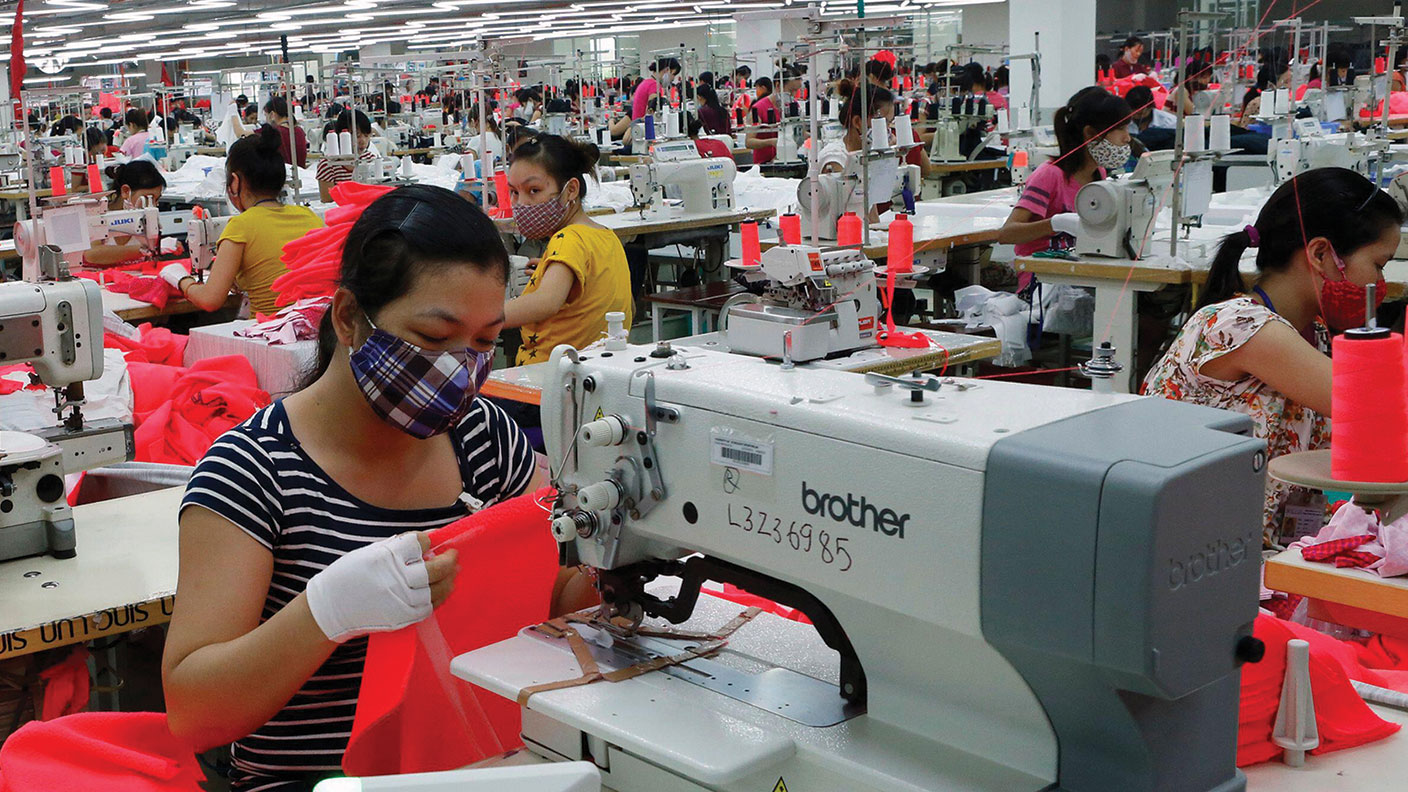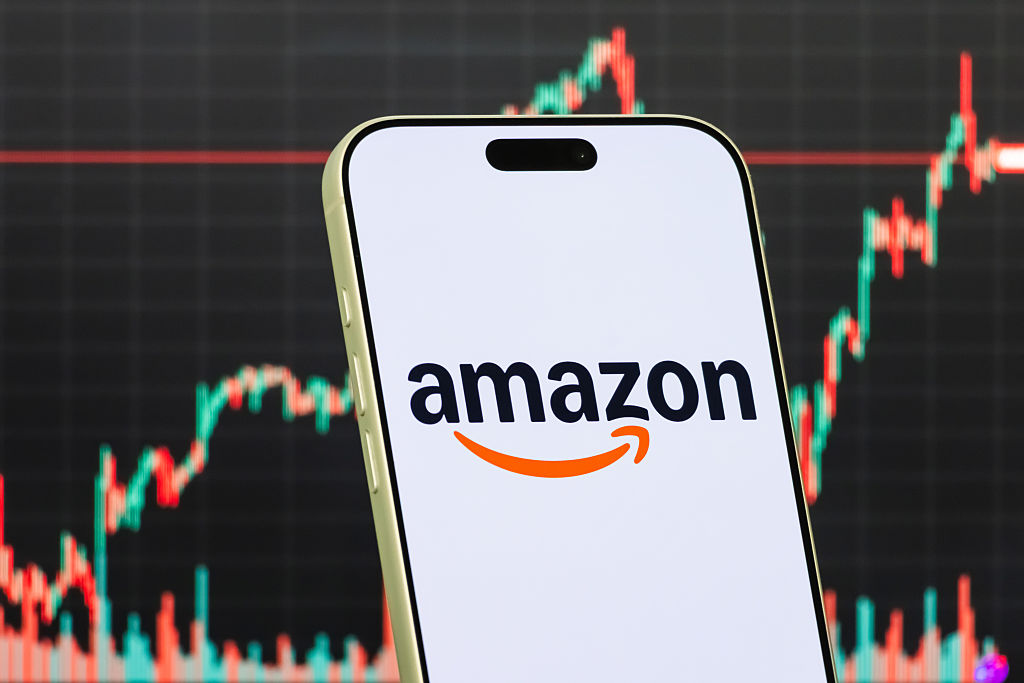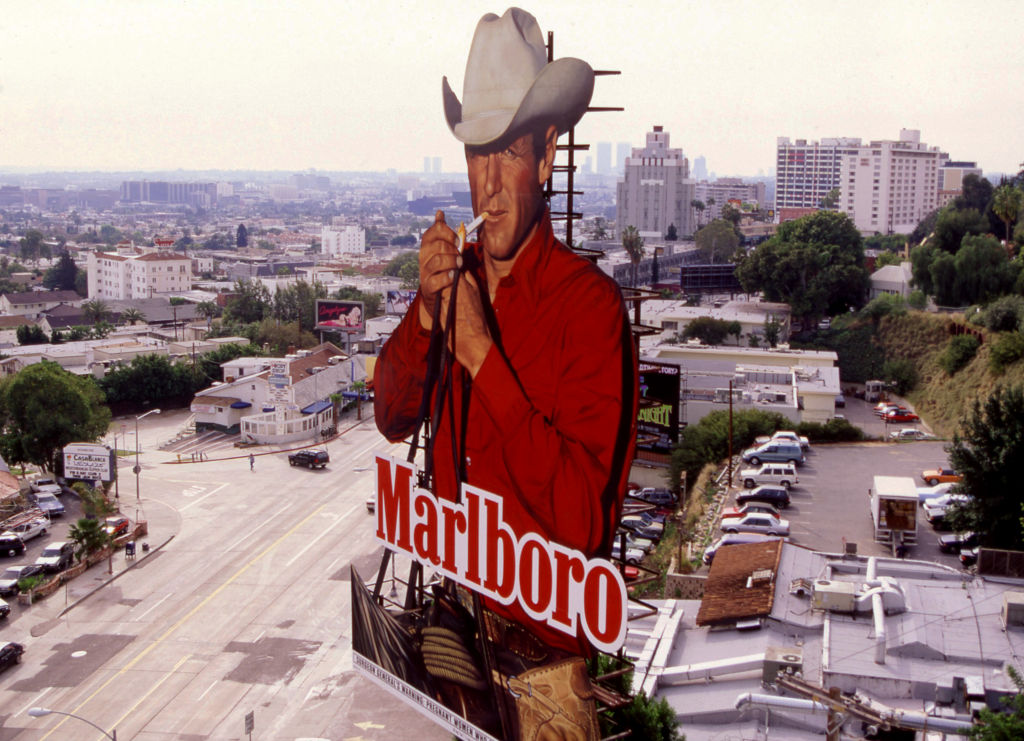Vietnam makes its mark on the global stage
Electronics manufacturers are moving into Vietnam, partly in response to manufacturing delays caused by lockdowns in China. The country’s textile industry is booming, too.

Get the latest financial news, insights and expert analysis from our award-winning MoneyWeek team, to help you understand what really matters when it comes to your finances.
You are now subscribed
Your newsletter sign-up was successful
Want to add more newsletters?

Twice daily
MoneyWeek
Get the latest financial news, insights and expert analysis from our award-winning MoneyWeek team, to help you understand what really matters when it comes to your finances.

Four times a week
Look After My Bills
Sign up to our free money-saving newsletter, filled with the latest news and expert advice to help you find the best tips and deals for managing your bills. Start saving today!
“‘Made in Vietnam’…is making its mark on the global stage”, says investment fund Vietnam Holding. “Manufacturers from all over the world are looking at Vietnam as part of their relocation strategy to effectively diversify and reduce supply chain risks”. Apple recently moved some iPad production into the country, joining firms such as Samsung and Intel that already have a significant presence, partly in response to manufacturing delays caused by lockdowns in China.
The textile industry is also booming, says Tomoya Onishi in Nikkei Asia. Exports are on course to hit an all-time high of $22bn in the first half of 2022, a 23% rise on last year. Numerous free trade deals and the post-pandemic boom in the West have turned Vietnam into the world’s second-largest clothing exporter.
Things looked very different last summer, says Rodion Ebbighausen in Deutsche Welle. A surge in Covid-19 cases saw the likes of Samsung, Apple, Nike and Zara forced to close factories for weeks. GDP fell 6% year on year in the third quarter. But since then Hanoi has taken “a pragmatic approach”, helped by the use of Western vaccines (unlike China).
MoneyWeek
Subscribe to MoneyWeek today and get your first six magazine issues absolutely FREE

Sign up to Money Morning
Don't miss the latest investment and personal finances news, market analysis, plus money-saving tips with our free twice-daily newsletter
Don't miss the latest investment and personal finances news, market analysis, plus money-saving tips with our free twice-daily newsletter
That has enabled a reopening that contrasts markedly with the situation in China, says Daniel Müller of the German Asia-Pacific Business Association. Even Chinese electronics groups “are moving facilities to Vietnam”.
Still, Vietnam faces plenty of economic challenges of its own. Deep integration with global supply chains leaves it vulnerable to ongoing disruptions emanating from Shanghai. With foreign trade representing 209% of GDP, the country is also heavily exposed to fluctuations in world trade.
Cleaning up Vietnam’s Ho Chi Minh bourse
Corruption is also a big weakness, says Philip Heijmans on Bloomberg. The ruling Communist party has recently launched a crackdown – including firing the head of the Ho Chi Minh bourse and the chair of the State Securities Commission – over claims of market manipulation and “illicit profits” on the exchange. In a “closely controlled, one-party state” it can be difficult to know what is really going on, but the firings appear to signal a desire to clean up the exchange.
However, that seems to have rattled investor confidence. The benchmark VN-Index is now down by 21% since its January peak, after a superb run that saw it gain 120% from its lows in late March 2020.
Still, while domestic retail investors have retreated from the market, foreign institutions seem to be “buying the bear”, says VinaCapital Vietnam Opportunity Fund. Foreigners were net buyers of another $151m in stocks in May after buying $175m in April. And, importantly, the sell-off has brought valuations down to just 12 times expected 2022 earnings – not a bad price for a country where GDP looks set to grow by at least 6.5% this year.
Get the latest financial news, insights and expert analysis from our award-winning MoneyWeek team, to help you understand what really matters when it comes to your finances.
Alex is an investment writer who has been contributing to MoneyWeek since 2015. He has been the magazine’s markets editor since 2019.
Alex has a passion for demystifying the often arcane world of finance for a general readership. While financial media tends to focus compulsively on the latest trend, the best opportunities can lie forgotten elsewhere.
He is especially interested in European equities – where his fluent French helps him to cover the continent’s largest bourse – and emerging markets, where his experience living in Beijing, and conversational Chinese, prove useful.
Hailing from Leeds, he studied Philosophy, Politics and Economics at the University of Oxford. He also holds a Master of Public Health from the University of Manchester.
-
 Early signs of the AI apocalypse?
Early signs of the AI apocalypse?Uncertainty is rife as investors question what the impact of AI will be.
-
 Reach for the stars to boost Britain's space industry
Reach for the stars to boost Britain's space industryopinion We can’t afford to neglect Britain's space industry. Unfortunately, the government is taking completely the wrong approach, says Matthew Lynn
-
 'The rise and fall of Kodak is a lesson for the tech giants'
'The rise and fall of Kodak is a lesson for the tech giants'Opinion The long decline of Kodak – a once-dominant company – shows why no business is safe from disruption, says Matthew Lynn
-
 Amazon stock falls as AWS results underwhelm
Amazon stock falls as AWS results underwhelmApple stock rose after earnings on a return to growth in China; Amazon's share price fell despite an earnings beat
-
 Amazon shares fall on profitability concerns
Amazon shares fall on profitability concernsA big increase in capital spending plans compounded an earnings miss for Amazon following its Q4 results
-
 Three iconic brands that lost their shine
Three iconic brands that lost their shineMany famous brands have lasted for decades, but history shows that they can suddenly fade away.
-
 5 top tech stocks to boost your investment portfolio
5 top tech stocks to boost your investment portfolioAdvice Major technology players such as Apple and Microsoft are staples of many portfolios, but there are plenty of other stocks in this vibrant sector to consider. We look at the top 5 tech stock to consider now
-
 Halifax: House price slump continues as prices slide for the sixth consecutive month
Halifax: House price slump continues as prices slide for the sixth consecutive monthUK house prices fell again in September as buyers returned, but the slowdown was not as fast as anticipated, latest Halifax data shows. Where are house prices falling the most?
-
 Rents hit a record high - but is the opportunity for buy-to-let investors still strong?
Rents hit a record high - but is the opportunity for buy-to-let investors still strong?UK rent prices have hit a record high with the average hitting over £1,200 a month says Rightmove. Are there still opportunities in buy-to-let?
-
 Pension savers turn to gold investments
Pension savers turn to gold investmentsInvestors are racing to buy gold to protect their pensions from a stock market correction and high inflation, experts say